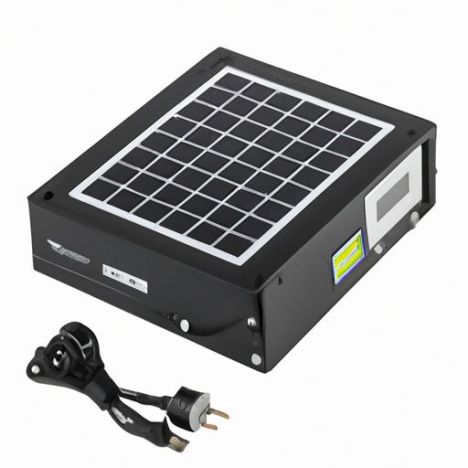Table of Contents
Avantages de l’utilisation d’un onduleur hybride solaire hors réseau avec chargeur de contrôleur
Comparaison des onduleurs de fréquence de puissance 48 V, 36 V et 24 V pour les applications solaires
Lorsque vous comparez les onduleurs de fréquence 48 V, 36 V et 24 V, il est important de prendre en compte non seulement la tension, mais également les besoins spécifiques de votre installation solaire. Si vous avez une demande énergétique importante et que vous pouvez vous permettre un onduleur à tension plus élevée, une option 48 V peut être le meilleur choix pour vous. Cependant, si vous avez une demande énergétique moindre ou si votre budget est limité, un onduleur 36 V ou 24 V peut être plus adapté.
En plus de la tension, il est également important de prendre en compte la qualité et la fiabilité de l’onduleur. Recherchez des onduleurs de fabricants réputés qui ont fait leurs preuves en matière de production de produits de haute qualité. De plus, tenez compte de facteurs tels que la couverture de garantie et les avis des clients pour vous assurer que vous obtenez un onduleur fiable et durable pour votre installation solaire.
En conclusion, lors du choix d’un onduleur de fréquence pour les applications solaires, il est important de prendre en compte la tension du onduleur ainsi que vos besoins énergétiques spécifiques et votre budget. Que vous optiez pour un onduleur 48 V, 36 V ou 24 V, assurez-vous de choisir un produit de haute qualité provenant d’un fabricant réputé pour garantir que votre installation solaire fonctionne de manière efficace et fiable pour les années à venir.
Comparison of 48v, 36v, and 24v Power Frequency Inverter for Solar Applications
When it comes to choosing a power frequency inverter for solar applications, there are several factors to consider. One of the key considerations is the voltage of the inverter, with common options including 48v, 36v, and 24v. Each voltage has its own advantages and disadvantages, so it’s important to understand the differences between them before making a decision.
A 48v power frequency inverter is a popular choice for larger solar installations. This higher voltage allows for more power to be generated and stored, making it ideal for homes or businesses with high energy demands. Additionally, a 48v inverter is often more efficient than lower voltage options, meaning that it can convert more of the solar energy into usable electricity.
On the other hand, a 36v power frequency inverter is a good option for smaller solar installations or for those on a budget. While it may not be as powerful as a 48v inverter, a 36v inverter can still provide ample energy for most residential or small commercial applications. Additionally, a 36v inverter is often more affordable than higher voltage options, making it a cost-effective choice for those looking to save money.
Finally, a 24v power frequency inverter is the lowest voltage option available. While it may not be as powerful or efficient as 48v or 36v Inverters, a 24v inverter can still be a good choice for small off-grid installations or for those with limited energy needs. Additionally, a 24v inverter is often the most affordable option, making it a popular choice for budget-conscious consumers.

When comparing 48v, 36v, and 24v power frequency inverters, it’s important to consider not only the voltage but also the specific needs of your solar installation. If you have a large energy demand and can afford a higher voltage inverter, a 48v option may be the best choice for you. However, if you have a smaller energy demand or are on a budget, a 36v or 24v inverter may be more suitable.
In addition to voltage, it’s also important to consider the quality and reliability of the inverter. Look for inverters from reputable manufacturers that have a track record of producing high-quality products. Additionally, consider factors such as warranty coverage and customer reviews to ensure that you are getting a reliable and durable inverter for your solar installation.
In conclusion, when choosing a power frequency inverter for solar applications, it’s important to consider the voltage of the inverter as well as your specific energy needs and budget. Whether you opt for a 48v, 36v, or 24v inverter, be sure to choose a high-quality product from a reputable manufacturer to ensure that your solar installation operates efficiently and reliably for years to come.

